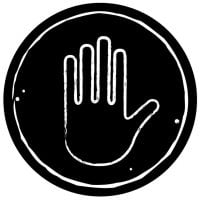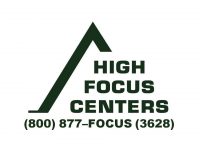Solstice Counseling & Wellness Center - Burlington County
Drug Rehab Center in Pemberton, New Jersey
Solstice Counseling & Wellness Center - Burlington County offers a comprehensive drug rehab program that includes detox, dual-diagnosis treatment, intensive and outpatient programs, and aftercare services, all of which are accredited by CARF with various insurance and self-pay options available.
About Solstice Counseling & Wellness Center - Burlington County in New Jersey
Solstice Counseling & Wellness Center – Burlington County, a private rehab in Pemberton, New Jersey, specializes in treating alcoholism, drug addiction, dual diagnosis, mental health, and substance abuse. This facility offers comprehensive care to help individuals overcome their struggles and achieve lasting recovery.
- CARF-accredited, ensuring the highest standards of care and treatment
- Offers a range of services, including detoxification, drug rehab, dual-diagnosis treatment, and outpatient programs
- Accepts private health insurance, making treatment more accessible
As a CARF-certified center, Solstice Counseling & Wellness Center – Burlington County adheres to strict standards in providing quality care. They are affiliated with Solstice Counseling & Wellness Center and offer aftercare support to help individuals maintain their sobriety beyond the initial treatment phase.
Solstice Counseling & Wellness Center – Burlington County treats a variety of addictions and mental health issues, including alcoholism, drug addiction, and co-occurring disorders. They employ evidence-based treatment approaches and create personalized care plans to address each individual's unique needs, providing a supportive environment that promotes healing and recovery.
Genders
Ages
Modality
Additional
Accreditations

CARF
The Commission on Accreditation of Rehabilitation Facilities (CARF) is a non-profit organization that specifically accredits rehab organizations. Founded in 1966, CARF's, mission is to help service providers like rehab facilities maintain high standards of care.
Conditions and Issues Treated
Substance Abuse Treatment is important when getting sober, as it helps addicts learn the skills they need to live a clean life. There are many different kinds of recovery treatment, including but not limited to medication-assisted therapy, behavioral therapeutic approaches, self-help groups, and counseling. Each treatment has its benefits that help addicts recover.
Counseling can help addicts learn the skills they need to live sober lives. It can be used to treat underlying mental health issues, like depression or anxiety, that could lead to relapse. Counseling can also help people find work, deal with family problems, and learn to manage living without drugs.
Dual diagnosis refers to someone who has both an addiction and a mental or emotional illness. Dual diagnosis treatment includes therapy for both issues simultaneously, allowing for effective treatment of either.
Sometimes people with addiction disorders also have co-occurring disorders like depression, anxiety, bipolar disorder, etc. These require specialized treatment programs that address both drug and alcohol addiction as well as psychiatric illnesses. Some rehabilitation facilities provide patients with co-occurring disorders a program with highly integrated services and a clean, distraction-free environment.
Levels of Care Offered
This center offers a variety of custom treatment tailored to individual recovery. Currently available are Aftercare Support, Detox, Drug Rehab, Dual-Diagnosis, Intensive Outpatient, Outpatient, with additional therapies available as listed below.
Detox is an integral part of recovery and often very hard. Detoxification is the process of letting the body remove the drugs in it. It addresses the physical aspect of addiction. Detox from drugs can be unsafe as the patient undergoes withdrawal symptoms that range from headaches, vomiting, body aches to seizures and cardiac arrests. The main purpose of detox is to keep the drug users comfortable as the drugs leave their system.
Quitting cold turkey is not recommended and can lead to many issues. Detox is best done under medical supervision so that a team of experts can monitor the side effects and complications. Detox, alone, does not guarantee sobriety as the underlying psychological issues are not addressed.
An intensive outpatient program (IOP) is effective for drug rehab, but it can take six months to several years to complete. It’s the most popular type of drug rehab program in the United States. One example of a successful IOP success story is actor and comedian Chris Rock, sober since 1990.
An IOP allows participants to spend nights at home while attending meetings throughout the day. It’s a good way for drug addicts to make a recovery plan in an outpatient setting while still supporting their loved ones.
Alcohol or drug addiction, or co-occurring disorders, are treated in an outpatient program. The patient must attend therapy and other programs at the facility but can return home each night.
Outpatient treatment allows recovering addicts to live at home while receiving addiction treatment. Outpatients can attend group sessions for a few hours per week. Outpatients may also continue to work full time and study/attend school without interruption if they choose.
The accomplishment of completing a drug or alcohol treatment program is just the first step. Once that is complete, aftercare support comes into play. This includes helping people adjust to life without substances outside of guidelines with assistance like getting sober living accommodations and career counseling and AA/NA programs for those who are struggling between sobriety or want continued help in maintaining it once they have completed their initial rehabilitation at an addiction facility.
Aftercare comprises services that help recovering addicts readjust to normal day-to-day activities while working on specific issues. These problems include psychiatric issues, family problems caused by substance abuse, continuing education pursuits if desired during rehab, etc. These can last up to one year+ depending on what’s needed most urgently upon completion of earlier stages.
Therapies & Programs
Different people react differently to various treatment options. Some drug rehabilitation centers offer individualized treatment that caters to the specific needs of a drug addict. The best treatment option varies on an individual depending on the type of drug abused, life history, medical condition of the person, social circumstances, and the environment they live in now.
When a person enters drug rehab, they usually have anti-drug associations such as withdrawal symptoms, stress, cravings, etc. The first step of drug rehab is to detoxify the body from any residual substances in it. Drug rehabilitation centers usually employ trained medical professionals to help in this process. Usually, the initial detoxification lasts for five days, where the person is monitored under close supervision.
Family therapy sessions typically involve the addict and their family members. During these sessions, a therapist will work with everyone involved to help them understand addiction and find healthy ways of coping without substance abuse.
Some addicts might feel embarrassed about their substance abuse problems. By encouraging family members to attend these sessions, therapists can show addicts that they’re not alone in dealing with addiction. Therapists can also work with family members to help them understand addiction and learn how to offer support and encouragement to their loved one as they deal with substance abuse issues.
Attending group therapy at Solstice Counseling & Wellness Center - Burlington County in , is a useful way for those seeking sobriety to realize they aren’t the only one going through it.
This is when a group of people on different recovery phases get together and talk about what they’re going through, their triggers, successes, and failures. This can include alternative types of therapies too! Group therapy may occur on an outpatient or inpatient basis with groups that have no pre-existing relationships outside the session, unlike support groups where everyone already knows each other beforehand.
Trauma therapy is a form of therapy used to help people process and understand past traumas. This can help struggling addicts, as many people turn to drugs or alcohol to mask the pain of their past. Trauma therapy can be done in several ways, such as through visualization, discussion, and writing down thoughts and feelings. The goal is to help the individual understand why they are having problems coping with certain situations and changing how they think and react to things. This is often done in tandem with other therapies to treat the underlying issues associated with addiction.
The idea behind trauma therapy is that while some people can experience traumatic events and not have lasting psychiatric symptoms, many others will. In these cases, memories get hidden from consciousness but continue to influence how the person processes and copes with things in their life. They may avoid situations that resemble what happened or become suddenly angry or irritated to a situation that reminds them of a past event. With the help of a therapist, people can go back over memories and experiences. This helps them understand why they are having problems coping with certain situations and changing how they think and react to things.
Life Skills Services offered at Drug Treatment Centers assists addicts in their recovery by teaching them healthy coping mechanisms that will aid them in becoming sober, focussing on helping people enter into, and maintaining long-term sobriety. Drug Treatment Centers provide Life Skills Services at varying levels of intensity, specific to the needs and requirements of each patient.
Life Skills Services offered at Drug Treatment Centers assists addicts in their recovery by teaching them healthy coping mechanisms that will aid them in becoming sober, focussing on helping people enter into, and maintaining long-term sobriety. Solstice Counseling & Wellness Center - Burlington County in Pemberton, New Jersey provide Life Skills Services at varying levels of intensity, specific to the needs and requirements of each patient.The benefits of Life Skills Services offered at Drug Treatment Centers:
- Restores hope and empowerment — Helps addicts believe that recovery is possible and instills a new confidence in their ability to achieve a positive, drug-free future
- Enhances family involvement — Encourages families to get involved in the recovery process and supports their understanding and encouragement of healthy behavior.
- Increases patient’s compliance — Helps patients take responsibility for and ownership of their recovery and encourages continued progress
- Reduces relapse rates — Encourages long-term abstinence and emphasizes the importance of establishing sober support systems.
Patient Experience
Creative Arts
If you’re looking for a drug addiction treatment program, you might want to consider creative arts therapy. This type of therapy can help patients express their thoughts and feelings they might not be able to otherwise. Having a creative outlet is also an excellent way to manage anxiety and deal with difficult emotions. In some cases, expressive therapy may include reading, music, theater, art, and more. A creative arts therapy program may be available at Pemberton, .
Experiential Therapy at Solstice Counseling & Wellness Center - Burlington County
Experiential therapy is a type of therapeutic approach that focuses on having patients work through problems, issues, or emotions by engaging directly in some real experience. It occurs face-to-face with a therapist who helps these people to explore their feelings first hand. The hope is that when this happens, the patient will feel driven to turn away from their destructive behavior and instead take up positive behaviors or coping mechanisms. Direct experience methods, role play, psychodrama, interpersonal and social learning are a few different forms of experiential therapy.
Payment Options Accepted
For specific insurance or payment methods please contact us.
Is your insurance accepted?
Ask an expert, call (888) 674-0062
Solstice Counseling & Wellness Center Associated Centers
Discover treatment facilities under the same provider.
Learn More About Solstice Counseling & Wellness Center Centers
Additional Details
Specifics, location, and helpful extra information.
Pemberton, New Jersey 8068 Phone Number(609) 288-8844 Meta DetailsUpdated April 15, 2024
Staff Verified
Solstice Counseling & Wellness Center - Burlington County Patient Reviews
There are no reviews yet. Be the first one to write one.
Pemberton, New Jersey Addiction Information
The state of New Jersey is afflicted by the rising opioid overdose crisis and the increase in the number of residents engaging in illegal substance abuse. 90% of the 2,900 drug overdose deaths in New Jersey involved opioids in 2018. Over 1.1 million New Jersey residents reportedly use drugs in a given year. High prevalence of drug and alcohol abuse caused 14% of all deaths in the state between 2008 and 2017.
31 overdose deaths in Pemberton, New Jersey between 2015 and 2018. In 2017 alone, there were 11 overdoses in the town. The town has one of the highest rates of HIV infection in the state. This is likely due to needle sharing among intravenous drug users. 28% of addicts in Pemberton started using drugs before they turned 18. Some of the most common treatments include inpatient rehabilitation, outpatient treatment, and support groups.
Treatment in Nearby Cities
- Wayne, NJ (69.5 mi.)
- Clementon, NJ (18.4 mi.)
- Keyport, NJ (41.6 mi.)
- Neptune City, NJ (39.2 mi.)
- Succasunna, NJ (61.3 mi.)
Centers near Solstice Counseling & Wellness Center - Burlington County
The facility name, logo and brand are the property and registered trademarks of Solstice Counseling & Wellness Center - Burlington County, and are being used for identification and informational purposes only. Use of these names, logos and brands shall not imply endorsement. RehabNow.org is not affiliated with or sponsored by Solstice Counseling & Wellness Center - Burlington County.






